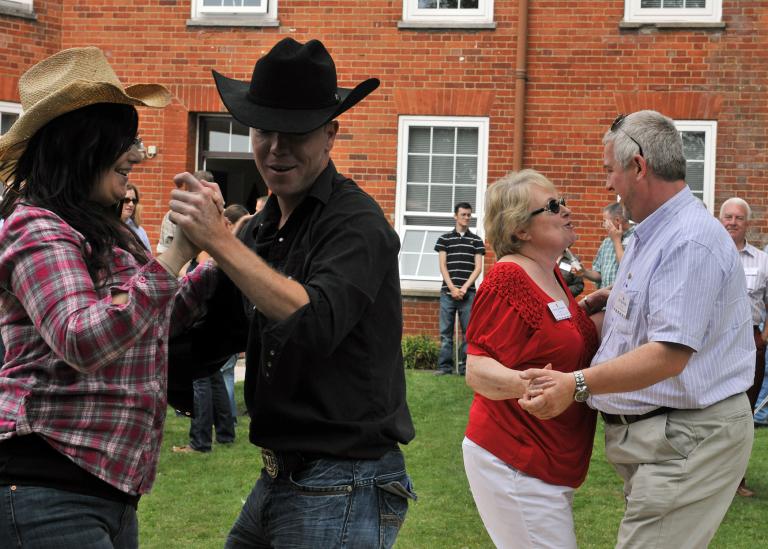A saying I often repeat is this: “Even heretics are not idiots.”
What’s my point? It is simple. We can learn something from anyone, including those whom we disagree with at a fundamental level. This lesson is not must be learned, and we frequently learn it the hard way.

The comments left in response to my previous post reinforce and illustrate this important principle. Even while disagreeing at times, a few readers and bloggers offered helpful explanations concerning the process by which one moves from theism to atheism. While intending to correct my statements, they instead highlight the need for nuance.
One more comment for context. We should remember that when we speak of the “cause for atheism,” we primarily refer to atheism in the West. After all, in China, due to government education, atheism is uncritically accepted as the default position.
An Atheist’s Response
A fellow Patheos blogger wrote a response to my post:
Atheists don’t become atheists because their churches have wronged them or refused to listen to their questions.… I can tell you without a doubt that the majority of atheists who were raised religious became atheists through education, not scorn. That is to say, while many have had negative experiences in their religious communities — abuse, ostracism, brainwashing, etc. — they became atheists after venturing outside their respective religious bubbles and investigating other explanations to the universe and its contents.
While bad experiences may lead individuals to leave their particular churches or communities, those bad experiences don’t necessarily cause people to abandon deep-rooted beliefs . In many cases, for example, a gay Christian who has been ostracized by his conservative church and its followers might leave that church and find a more liberal and welcoming sect of Christianity.
A key word above is “necessarily.” Of course, I do not suggest bad experiences themselves cause people to become atheists.
The Atheistic Two-Step
A comment from a reader, Lark62, exposes the sequence implicit even to the blog post quoted above. Lark62 explained,
“For me and many others, the journey from Christianity to atheism is sort of a 2-step process that takes months or years.
Background – since before I was a teen, I simply assumed Christianity was true and God existed. I liked being a Christian.
First step, something happens that makes a person sit up and pay attention. In my case, it was the Boston abuse scandal. Not the perps – they can be found anywhere – but hundreds or thousands of priests surrounded by bibles and prayer and all things Jesus acted exactly like members of any other human group and protected their friends no matter how many children were raped. There were no new creations. There was no power in the blood.
Note – this is not what made me discard my faith, it is what first made me examine my faith. It made me sit up and look at the promises of Christianity.
Second step, people examine the claims of Christianity. Now I read the bible without skimming over the unpleasant bits. I had memorized hundreds of Bible verses. Carefully chosen sound bites it turns out. Now I read and paid attention to the rest. That is one absurd, illogical and messed up book. At some point it clicked that all of Christianity rests on blood sacrifice. “Deity angry, something gotta die.” It was all over. I wasn’t angry or hurt. I just felt a little silly for believing nonsense for so long.”

Several atheists objected to my claim concerning the reasons why people become atheists. However, their testimonies further illustrate my point.
Consider a follow-up statement posted by Lark62 ,who adds…
Most people talk about the trigger that I called step 1 – that thing that jolted them into paying attention. For the man in your example it was trying to mesh Genesis with reality. But that is just the pebble that starts the avalanche.
Most atheists I converse with have thought about it and did reach a positive conclusion that there is no evidence to justify belief in the Christian god or any other deity. It isn’t quick or especially emotional. Although for people whose livelihood or entire social existence is bound up in the church, the realization that religion is make believe is devastating. But things seen can’t be unseen.
My previous post addressed what Lark62 calls “the trigger.” While not sufficient in itself to spur a “deconversion,” it does provide the impetus and fuel that drives people to seek intellectual justification for leaving the faith, which they now find increasing repugnant at an emotional level.
A former pastor used his blog to chronicle his “deconversion” to atheism. He describes the conversation where he first shared his new perspective. He says,
I decide to talk about the points of the Bible I already know he disagrees with; death sentence for homosexuals, hell, and the general lack of grace, love, and holiness exhibited by Christians for the last 2,000 years.
The fear and the sense of isolation mark the stories of countless people.
What about Christians and other theists?
Another redirected my opening paragraph by applying it to religious people. She says,
Few people are religious for intellectual reasons. They might find reasons to justify their belief, but people rarely become religious because they have methodically considered all the options and evidence before concluding, ‘God exists.’
I agree that my words could be applied to various people in the “religious” camp. My statement does not imply anything about theists. It merely makes a claim about the experience of countless atheists.
Whether an atheist or theist, the mind and heart are always in conversation. My point is simple: Christians do not help their cause when they shut down opportunities for dialogue, discourage disagreement or questions about secondary issues, and look at such people with suspicion whereby doubters feel that even friendship is conditioned on their agreeing on doctrine.

















